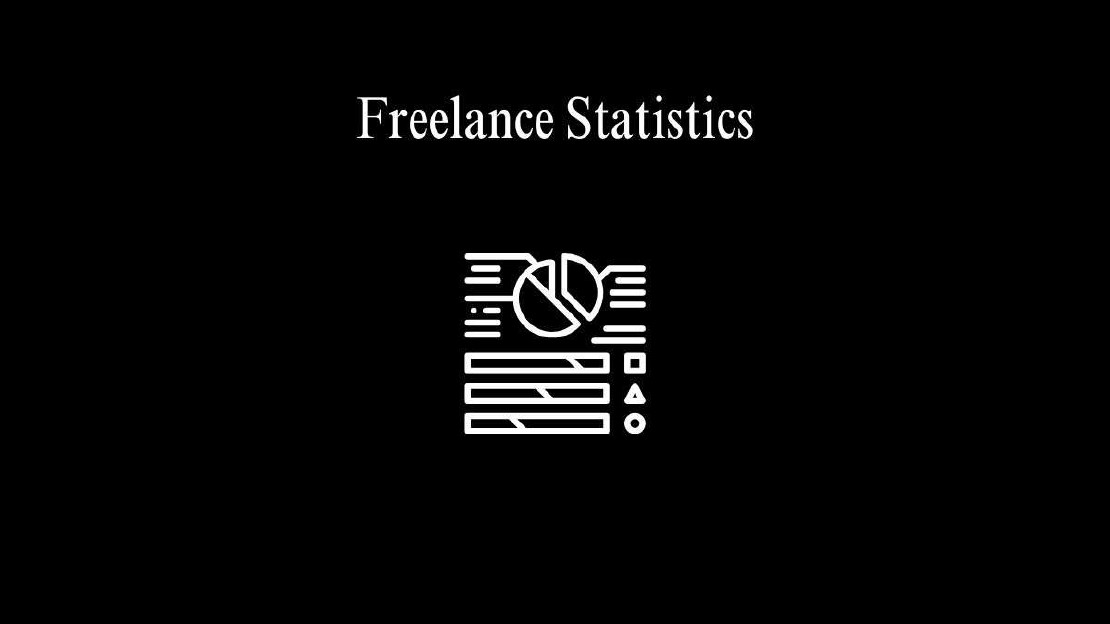18 Breathtaking Freelancer Statistics
As a freelancer or on-demand worker, staying informed about industry trends, market dynamics, and emerging opportunities is crucial for success. To help you navigate the freelance landscape more effectively, we’ve compiled key statistics that every freelancer should know. These insights can inform your strategies, guide your decision-making, and empower you to thrive in the competitive world of freelancing. In this post, we will examine 18 freelancer statistics.
18 Freelance Statistics
Freelancing is becoming a go-to option for beginners, driven by its flexibility and accessibility. Learning how to become a freelancer often starts with honing marketable skills and using online platforms to connect with clients. For many, freelancing offers a way to gain experience, build a portfolio, and explore diverse opportunities without committing to a traditional job. This growing trend highlights why more individuals are choosing freelancing as a stepping stone in their careers.
1. The Gig economy is Thriving
The gig economy’s prosperity stems from several factors, including technological advancements, shifting cultural attitudes towards work, and the demand for flexible employment arrangements. This convergence of elements has created a fertile environment for freelancers to thrive, reshaping the landscape of labor markets globally.
2. Freelancing Offers Financial Freedom
Freelancing presents a viable path to financial independence, allowing you to earn income on your own terms. However, its essential to understand how to manage your freelance finances.
77% of on-demand workers are optimistic about there personal income salary. Source: Upwork’s Freelancing to Financial Freedom.
3. Remote Work is the New Norm
Remote work has become the new norm due to advancements in technology, enabling seamless communication and collaboration from anywhere. Organizations recognize the cost-saving benefits, increased productivity, and access to a global talent pool, solidifying remote work as a permanent fixture in modern work culture. With the right skills and strategies, you can begin your journey to remote work from home opportunities.
98% of respondents want to work remotely, at least some of the time, for the rest of their careers (Source: Buffer’s State of Remote Work report).
4. Networking is Essential
Networking is not just advantageous; it’s imperative for professional success. By cultivating relationships, individuals can tap into hidden job markets, receive mentorship, and establish themselves as industry leaders, ultimately propelling their careers to new heights.
5. Online Presence Matters
Through data-driven analysis, it’s evident that businesses with a robust online presence experience higher customer engagement, increased brand loyalty, and ultimately, greater financial success.
- 81% of shoppers conduct online research before making a purchase (Source: HubSpot).
- Social media platforms have 4.48 billion users worldwide (Source: Hootsuite).
- 59 million Americans freelanced in 2020, many using online platforms to find work (Source: Upwork and Freelancers Union).
6. Diversification is Key to Success
Diversification emerges as a compelling strategy for success. It reduces dependency on any single source of income or market segment, thereby enhancing stability and sustainability in the face of uncertainty.
45% of on-demand workers have diversified their income streams (Source: Freelancing in America report).
7. Time Management is a Challenge
As a freelancer, balancing client projects, personal life, and administrative tasks is akin to juggling flaming torches. Without careful time management, the flames of productivity can quickly turn into a chaotic inferno.
44% of freelancers struggle with time management (Source: TSheets).
8. Freelancers Value Flexibility
Freelancers cherish flexibility as it allows them to adapt their schedules to accommodate diverse projects, personal obligations, and lifestyle preferences. This adaptability fosters productivity and creativity, ultimately leading to greater professional fulfillment.
80% of independent contractors say the ability to work flexibly is a top priority (Source: FlexJobs).
9. Cybersecurity is a Concern
Picture a world where cyber threats lurk in the shadows, ready to strike at any moment. Stories of data breaches and cyber attacks fill the headlines, underscoring the urgency of addressing cybersecurity concerns. Through collective action and vigilance, we can rewrite this narrative, fortifying our digital defenses and ensuring a safer online environment for all.
10. The Importance of Contracts
Compared to traditional employment, where contracts are standard, freelancers face greater risks without formal agreements. Contracts establish boundaries, ensure fair compensation, and mitigate legal liabilities, safeguarding freelancers’ interests.
71% of freelancers have faced nonpayment or late payment issues (Source: Freelancers Union). Freelancers underreport their income by 63%, according to the IRS.
11. Health Insurance Challenges
Through analysis, it’s clear: freelancers indeed grapple with the challenge of affordable health insurance. Market trends and data highlight the disparity in insurance costs between traditional employment and freelancing, exacerbating the issue.
20% of independent contractors struggle to find affordable health insurance (Source: Upwork’s Freelancing in America report).
12. Upskilling is Essential
When it comes to freelancing, upskilling is indispensable. Research shows a direct correlation between continuous learning and career success, with upskilled individuals often commanding higher salaries and enjoying greater job satisfaction.
13. Mental Health Awareness
Many on-demand workers experience symptoms of mental illness. The nature of freelancing, including isolation, irregular income, and high stress levels, can contribute to conditions like anxiety and depression.
60% of on-demand workers have experienced symptoms of mental illness (Source: Mind Share Partners).
14. Tax Compliance Is Crucial
Undoubtedly, tax compliance is non-negotiable for freelancers. Those who neglect it risk facing audits, fines, and even legal action, jeopardizing their livelihood and professional reputation.
Self-employed individuals underreport their income by 63%, according to the IRS.
15. The Rise of Niche Markets
Without a doubt, niche markets are experiencing a surge in the freelance industry. Freelancers who establish themselves in specific niches not only stand out but also command higher rates and attract more clients seeking specialized expertise.
73% of freelancers specialize in two or more skills (Source: Forbes).
16. Work Life Balance is a Priority
Independent contractors must prioritize work-life balance fervently. It not only enhances overall happiness and satisfaction but also improves performance and longevity in the freelancing career. Achieving a healthy work life balance is essential for freelancer well-being, productivity, and overall satisfaction.
A survey by FlexJobs found that 97% of professionals believe having a flexible job would have a positive impact on their quality of life.
17. Professional Development Opportunities Abound
Inarguably, freelancers cannot afford to disregard professional development opportunities. Those skeptical must acknowledge their pivotal role in skill refinement, market differentiation, and sustained success in an ever-evolving professional landscape.
18. Collaboration Enhances Creativity
Freelancers should embrace collaboration wholeheartedly as it fuels creativity. Through collaboration, ideas evolve, synergies emerge, and projects reach new heights of innovation and excellence.
- Harvard Business Review reports that employees who collaborate with diverse teams perform better and are more innovative.
- Collaborating with other freelancers, agencies, or clients can spark creativity, generate new ideas, and drive project success.
- According to McKinsey, the global gig economy was worth 4.5 trillion dollars in 2020, representing 4.4% of global GDP.
All in All
Armed with knowledge and tools presented in this guide, on-demand workers can unlock new opportunities, mitigate risks, and achieve greater success in their careers. Statistics isn’t just a subject for academics and researchers; it’s a practical toolkit for those seeking to thrive in today’s data-driven world. So embrace the power of statistics, and watch your freelance career soar to new heights.
Recent Posts

- Freelancing
What is Freelancing
In an era characterized by rapid technological advancements, shifting employment paradigms, and a burgeoning desire for autonomy and flexibility, freelancing …

- Freelancing
Wealthiest Freelancers List
In a world where traditional employment is continually being redefined, freelancing has emerged as a lucrative career path for many. This investigation delves …

- Freelancing
Managing Freelance Finances
Freelancing offers unparalleled freedom and flexibility, but it also brings unique financial challenges. Unlike traditional employees who receive regular …
